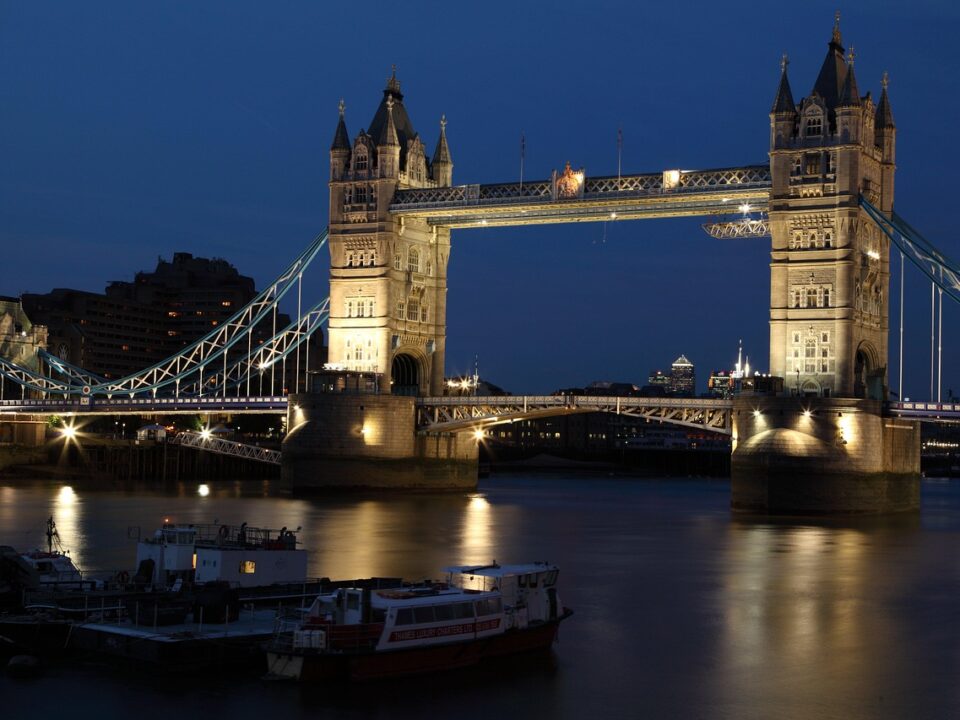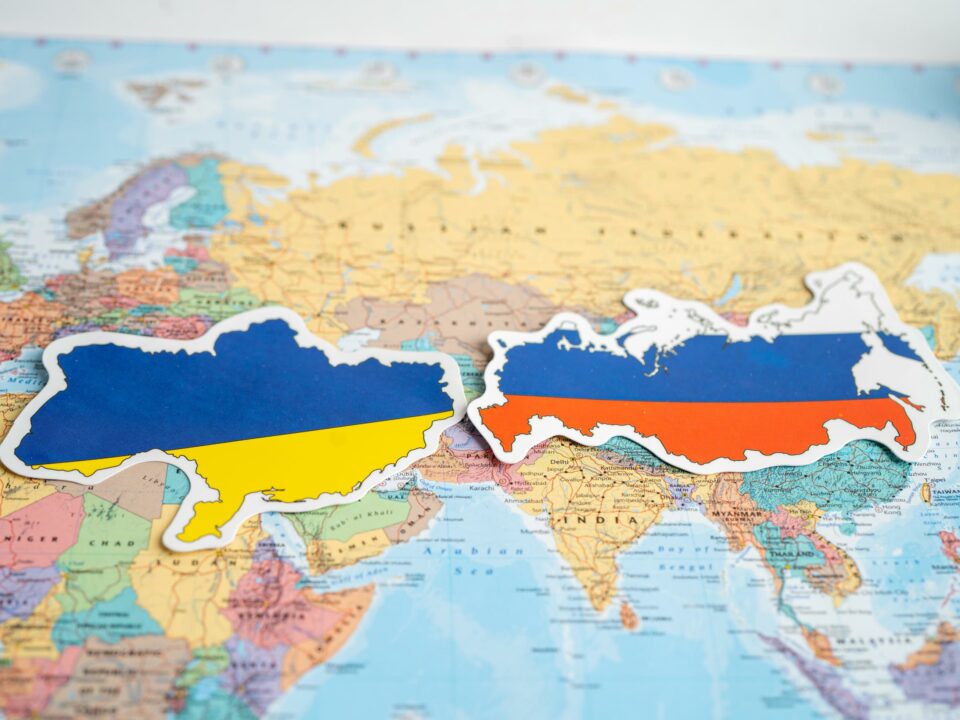
OpenAI, Microsoft and Elon Musk: The Fallout
December 17, 2024
Sustainable Fashion and IP: Exploring How IP Law Can Promote Sustainable Practices In The Fashion Industry
December 18, 2024Article by Nisha Rikhi
Our national security is now more important than ever. Given the war in Ukraine, the threat posed by Putin and conflicts in the Middle East, investing in our national security must take centre stage in British politics. Now that Trump has been re-elected in the United States, the issue of national security is even more pressing. This article looks at various aspects of our national security and how we can enhance or improve it.
Funding the armed forces properly is vital to our national security. In order to secure ourselves from outside threats, we need to have armed forces that are properly funded and properly equipped. Given the looming threat posed by Putin and Russia, it is vital that the British government ensures our armed forces are properly equipped in order to meet the scale of the threat posed to our security. The British government must also be mindful of the implications of a coming Trump presidency. Trump has adopted an ‘America first’ approach and was, at best, hostile towards participation in NATO during his last presidency. This means that the world cannot rely on American support for NATO defence, so Britain will need to increase its defence funding and participation in NATO activities. This means that Britain will need to think very carefully about exactly what kind of defence strategy it needs and how best to spend the defence budget.
As we are an island nation, it might be prudent to invest in a more sophisticated and better equipped, larger navy to defend our waters. Given the threat posed by Russia and the fact that Russian fighter jets have approached British airspace before, it might be wise for Britain to invest in a larger and better equipped air force to defend its skies. But the fact remains that however we decide to spend our defence budget going forward, we must ensure that we are able to defend not only our own island, but also effectively participate in NATO’s defence of Europe. This is because Europe is not only our closest neighbour but also the continent that we have the closest ties to. We trade far more with Europe than we do with the United States, and we have more travel and cultural ties with Europe than the United States. Given the proximity of Russia to Europe and Britain, it would be foolish not to actively invest in our military and our participation in NATO, given the war in Ukraine and the threat posed to Europe and democracy by President Putin.
Getting young people involved is important to ensuring that the country has a groundswell of people to call upon in a crisis. Young people are the future of the country and their support is vital to the country’s national security. There has been debate in recent times about whether we should mandate national service for young people. National service has its benefits and is an option that should be seriously considered. However, on its own, national service does not provide long-term involvement of young people. The armed forces need to be able to recruit and retain young people into the army, navy and air force. Bringing in a form of national service is not enough as young people will only be volunteering for a set period of time. Given the growing instability in the United States, the wars in the Middle East, and the war in Ukraine, Britain may need to think about adopting some form of conscription. The government could look at adopting the models used in Finland or Switzerland. Both countries mandate that their citizens take an active part in the defence forces or civil emergency forces, and it may be right for the UK government to mandate something similar for the British people. This will ensure that there is a sufficient fighting force to mount a defence of our air, land and sea borders should there be a threat or attack on the UK.
Energy security is now more important than ever. This is because Russia’s invasion of Ukraine and the energy crisis has exposed just how insecure the UK’s energy supply is. Britain urgently needs to start producing more of its own energy in order to reduce its reliance on imports. We can do this by investing significantly in solar and wind energy, which can be produced by Britain relatively cheaply, which will also feed into lower consumer energy prices. We can also significantly increase the amount of renewable energy we produce and use to power homes and businesses by nationalising the National Grid, so that the government can pump investment into the production of renewable energy while stripping away the imported oil and gas that is used to predominantly supply energy in the country. We should also be building more battery plants in the UK to store electricity and energy so that we have reserves and can provide more of our own electricity supply without needing to resort to imports. Investing in solar and wind energy, along with building battery plants, is vital to our national security. This is because we need to take urgent steps to ensure that we are not reliant on energy produced by countries like Russia. Recent events have shown that the world is now less stable than it was before and we know that our energy security has been compromised by an over-reliance on imported energy. This means that we need to invest in producing energy ourselves in order to protect the resilience and security of our nation’s energy supply going forward.
Water security is vital for an island nation. Britain is surrounded by the sea and we have a lot of rivers and waterways in the country. Being able to access clean water is vital to national security. Without clean water, farmers cannot grow produce and people cannot use the water to cook or drink. This means that our water supply is very important and is one that we should be seeking to preserve at all costs. It has been disheartening to see water companies dump sewage in our waterways when they know full well that the water is vital to people, farm animals and wild animals. This systemic dumping of sewage has had a serious effect on our society. As we have seen in the press, water companies have incurred huge fines for dumping sewage and they have received criticism from politicians, sporting organisations and the public for damaging our water supply. Water sports organisations have cautioned people against using the rivers for sporting activities. Environmental organisations have exposed the damage that sewage spills have done to wildlife and the natural environment. This has been a disaster for our water security. The terrible conduct of water companies has called into question the safety of our water supply and the effectiveness of our sewage systems. We know that climate change is having a serious effect on our weather and our water supply, with increased flooding and increased hosepipe bans due to droughts. Therefore, urgent action must be taken to secure the safety of our water supply and to ensure that companies no longer spill sewage into our waterways.
Food security is very important for Britain. This is because we are an island nation which means that we are heavily reliant on imports. The government needs to incentivise supermarkets to sell more British-produced fruit, vegetables, wheat, meat and dairy products. This will help support farmers who face a changing financial and environmental landscape, with many struggling to keep their farms going. Getting supermarkets to sell more British produce will mean that farmers will benefit from a more reliable income and will also ensure that the country is able to produce much more of its own fresh food. This means that Britain will be less reliant on imports for things that we can grow or produce here at home. Furthermore, farmers should be encouraged to diversify their businesses to increase their economic prosperity and participation in their rural communities. Farmers should be incentivised to mill their own harvested wheat into flour, butcher their own animals, turn the milk they produce into yoghurt or cheese and turn their sheep’s wool into spun yarn for sale to supermarkets and other suppliers, for example. This will help them make more money as farmers can attract higher prices if they process the raw goods they produce and it will also mean that farmers are participating in a wider cross-section of the economy. Diversifying farms and producing more than just raw harvests or produce will ensure the viability of small and medium-sized farms, ensuring a steady supply of foodstuffs for consumption in the UK. In addition, farmers should also be incentivised to farm in a more sustainable way, turning waste land into wild flower meadows and using less fertiliser on crops, for example. This will ensure that the effect of farming on the environment is reduced and ensures that long-term sustainability of farming in the UK. Therefore, there are a variety of measures that can be taken to ensure that Britain is able to produce its own food securely and sustainably over the long-term.
We must acknowledge that there is a tension between spending on national security and spending on bread-and-butter issues that every government must address. Quite rightly, the population expects the government to spend money on education, housing, healthcare, transport and welfare benefits which are issues that directly affect the day-to-day lives of the people. However, it is clear that issues of national security have a profound effect on people’s lives and touch more of our day-to-day lives then we might think. Cybersecurity, the energy crisis and the pollution of our waters are all current issues that have national security implications as well as practical considerations. The government must explain to the people why the defence budget must increase and why we must spend more on our civil national security, and how that will affect their everyday lives. Making sacrifices on spending in bread-and-butter issues like housing and education, for example, to ensure we can spend more on national security must be framed as a win-win scenario by the government. If we make sacrifices now to ensure we have robust energy and water security, and a well-funded, well-equipped armed forces, we will all be more secure and safer. This will mean that in the long-term, we will be able to put more money back into the bread-and-butter issues that affect everyday lives. But the government must be clear that the peace dividend that we inherited at the end of the war has now expired and we must prepare ourselves for a more uncertain, unstable and volatile world.
Therefore, one must conclude that national security is an issue that has become much more important given recent events in Europe and the wider world. With war on the borders of Europe and the prospect of a Trump presidency in January with the economic and political uncertainty he will bring to the world, it is clear that Britain must take a more active interest in its national security and seek to strengthen it wherever possible.





